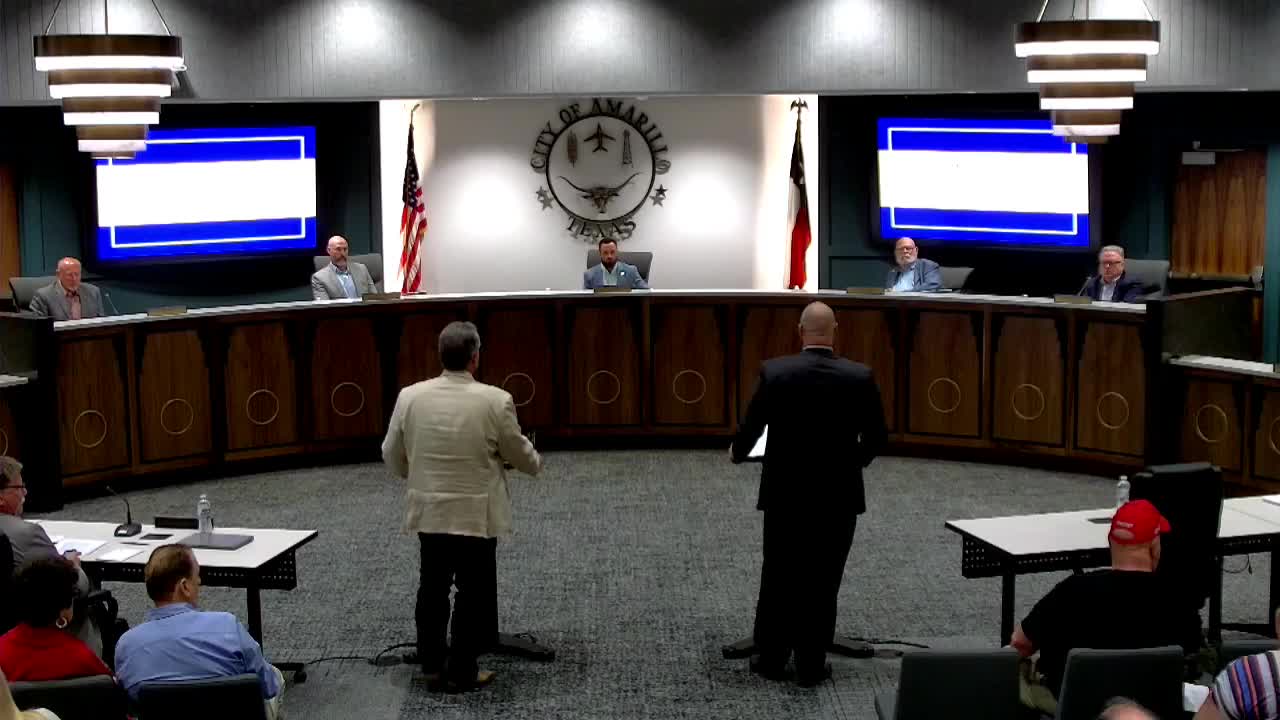Article not found
This article is no longer available. But don't worry—we've gathered other articles that discuss the same topic.
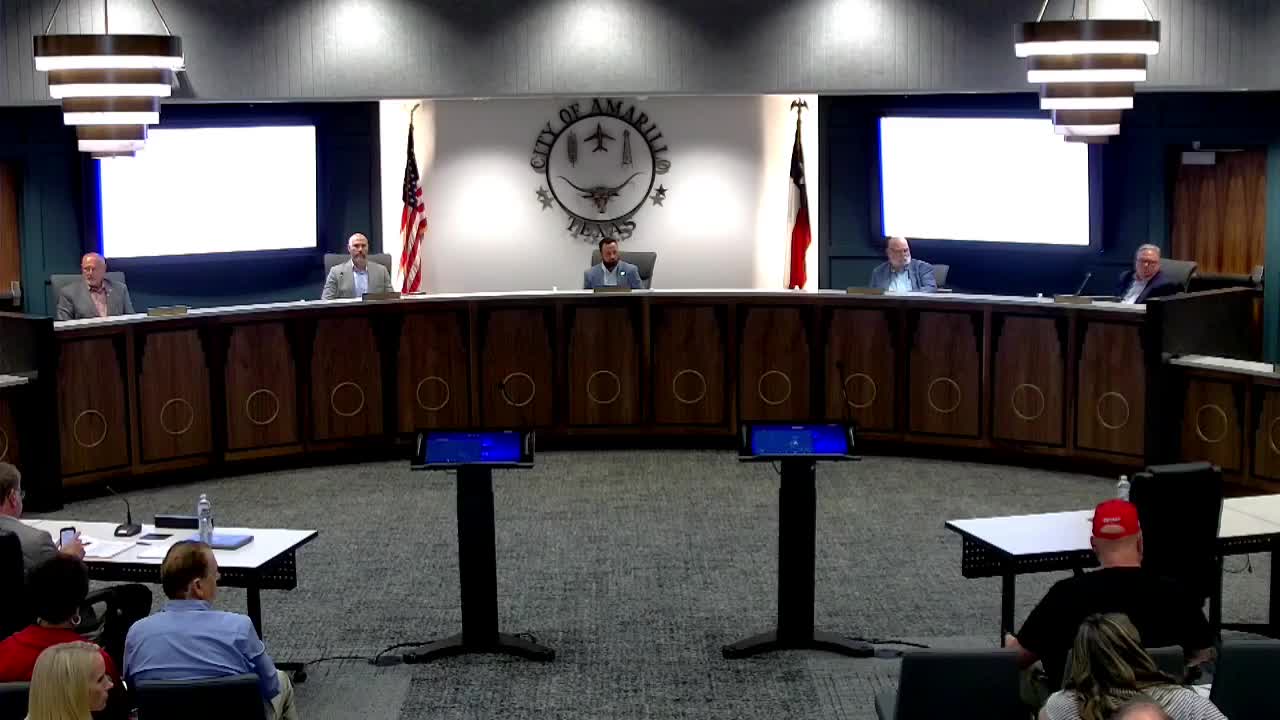
Amarillo council approves 10-year lease to help fund new day center and sublease to Transformation Park

Council asks staff to publish monthly check register and quarterly general-ledger payment report
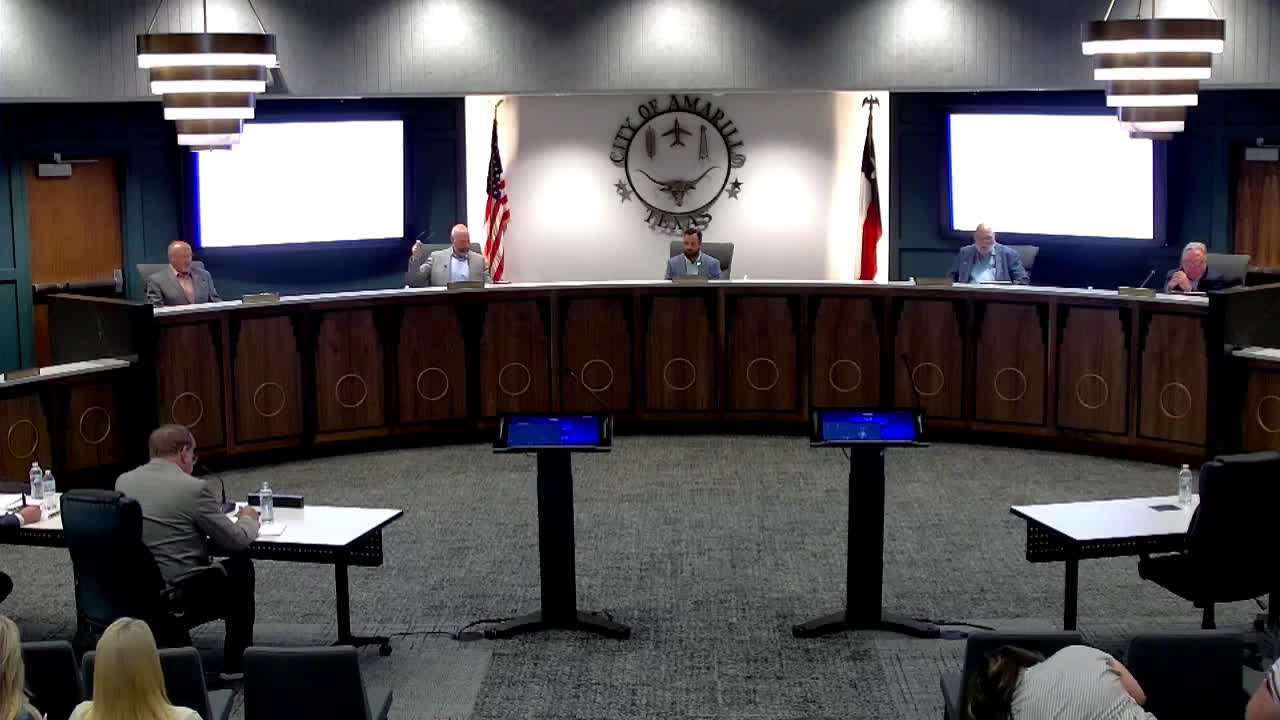
Council approves policy to allow pre-authorized third-party inspections for limited circumstances
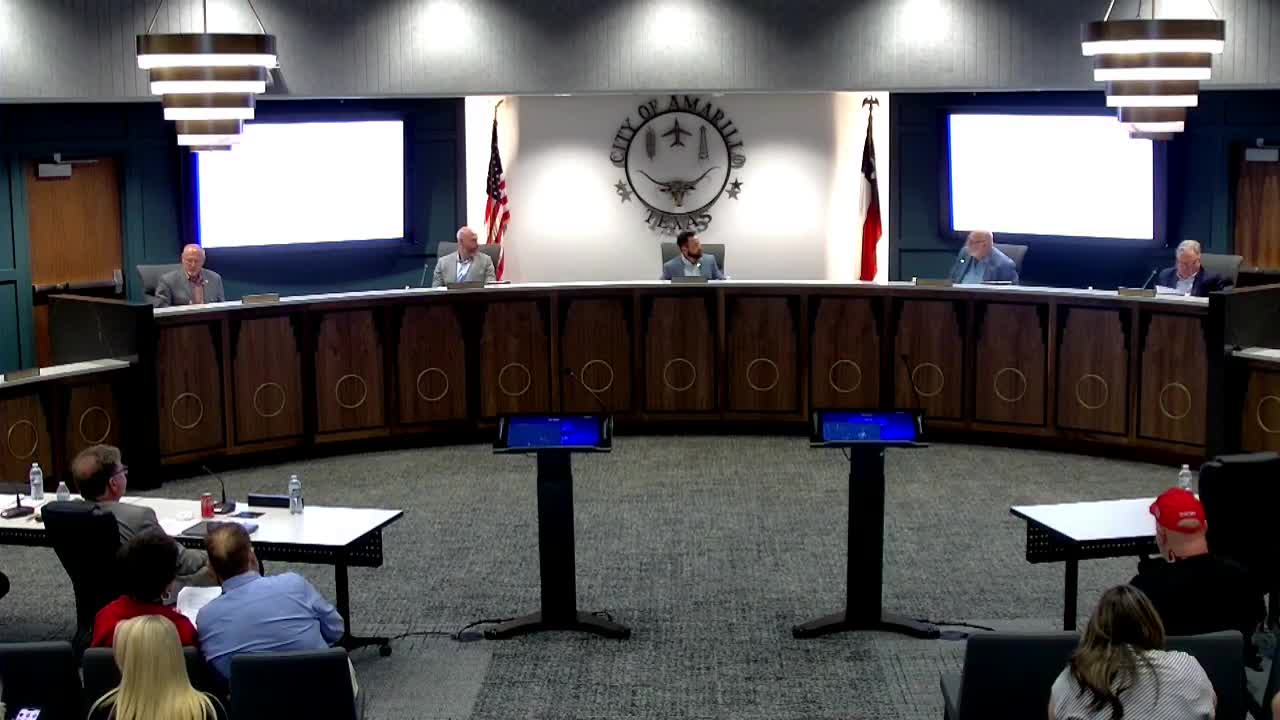
Seniors ask city for a coordinated plan and funding; council asks staff to research options
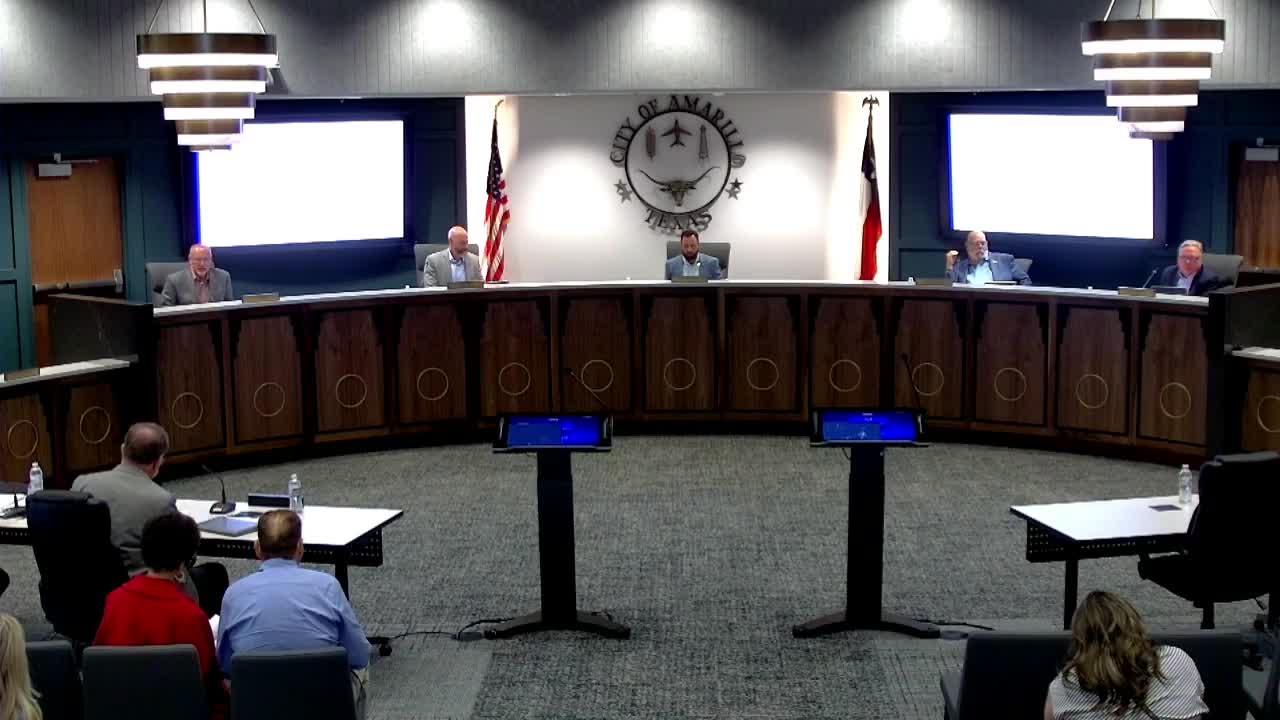
City launches Partners for Accessible Amarillo task force and pledges outreach on accessible parking
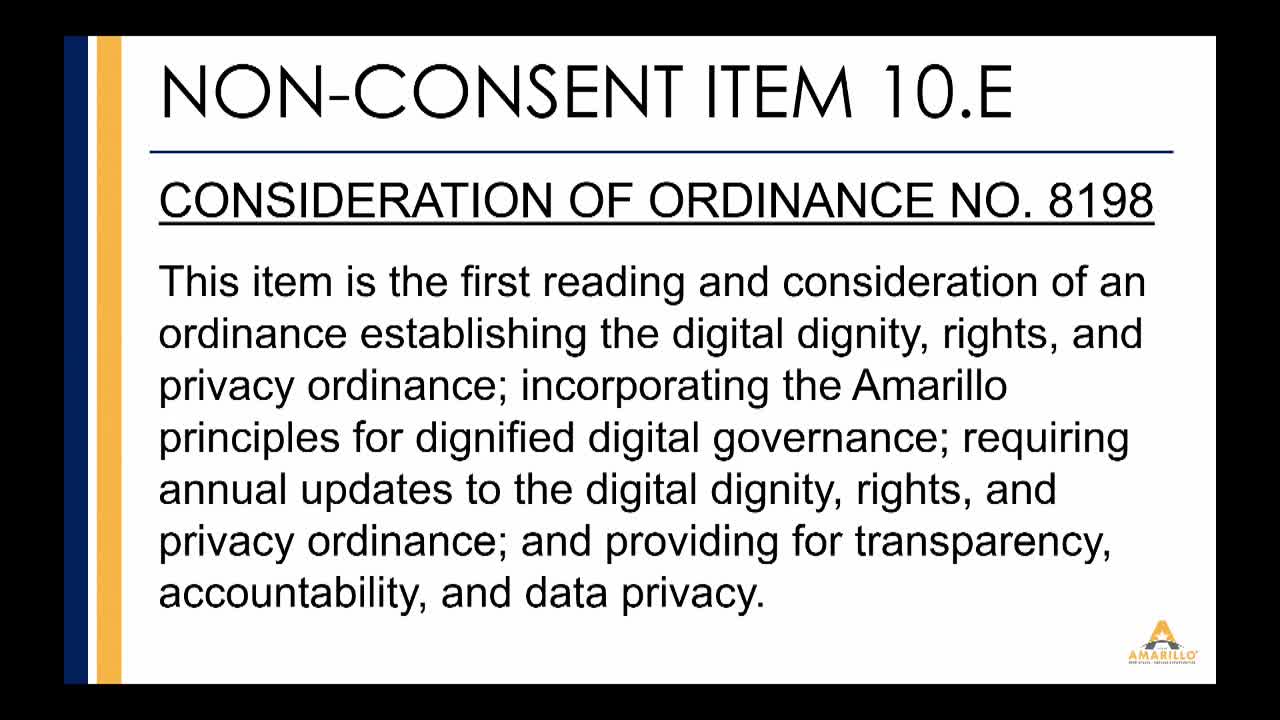
Amarillo adopts digital-dignity ordinance regulating city use of personal data and tech systems
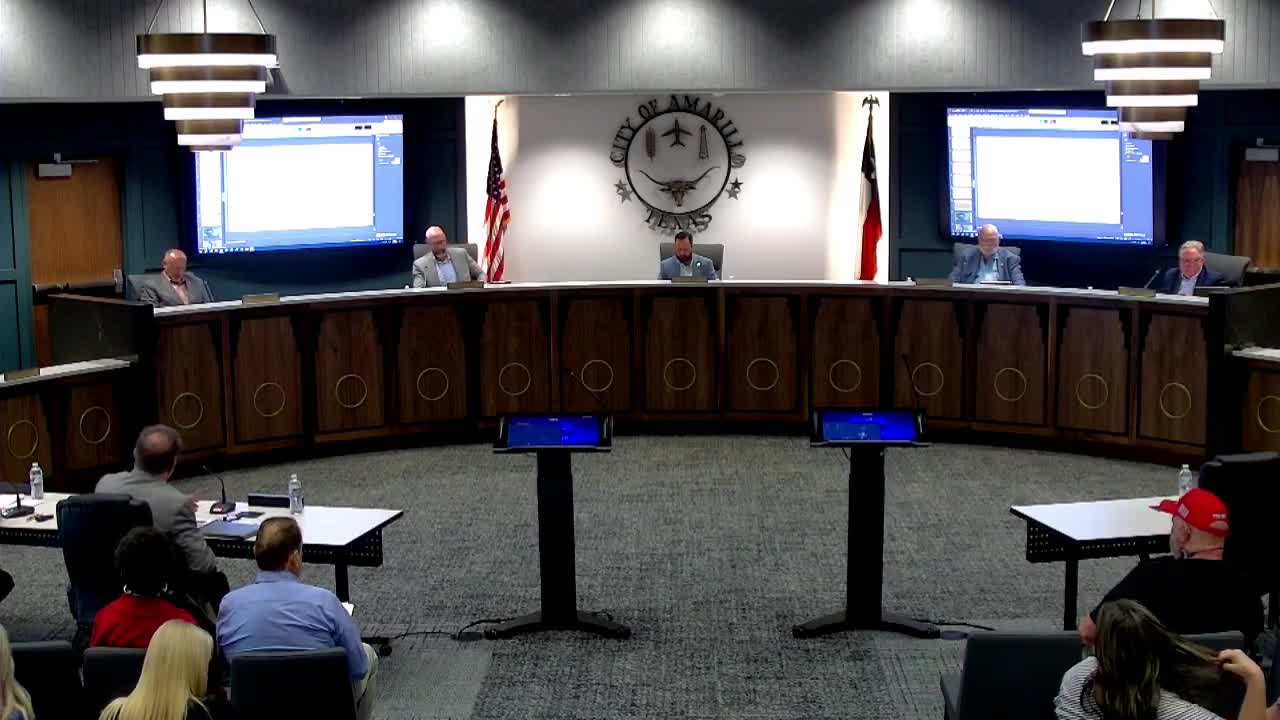
Amarillo staff outline plan to replace Hollywood treatment plant and upgrade River Road amid growth projections
